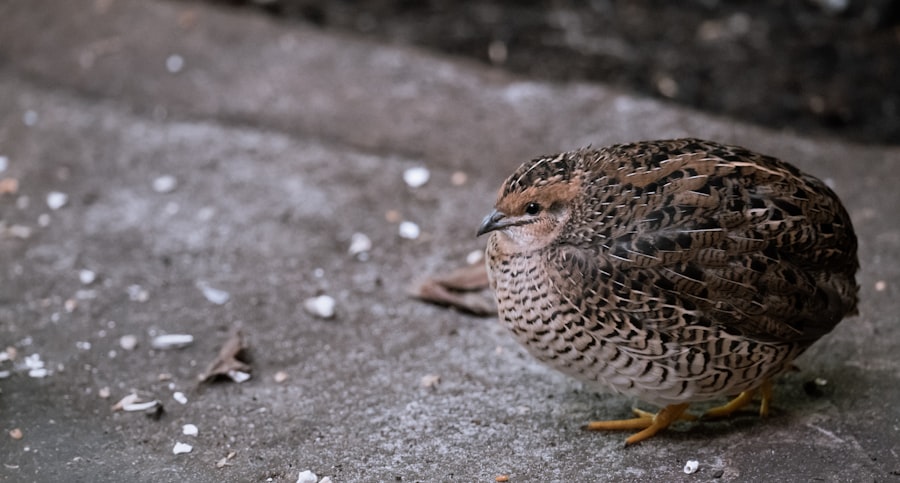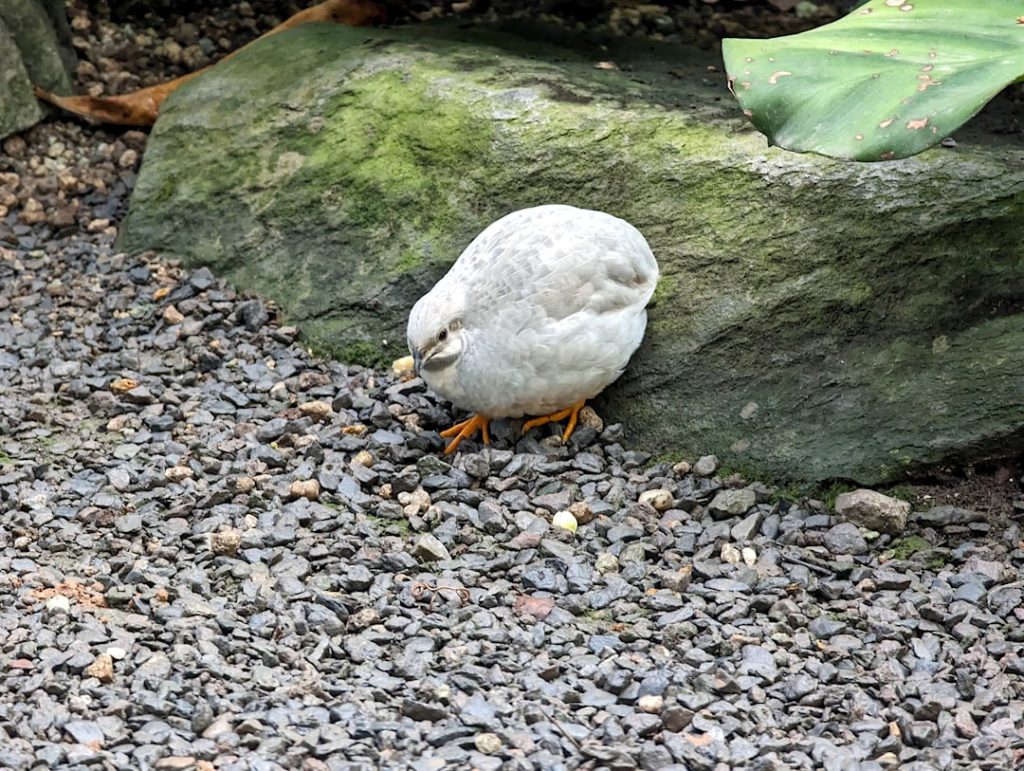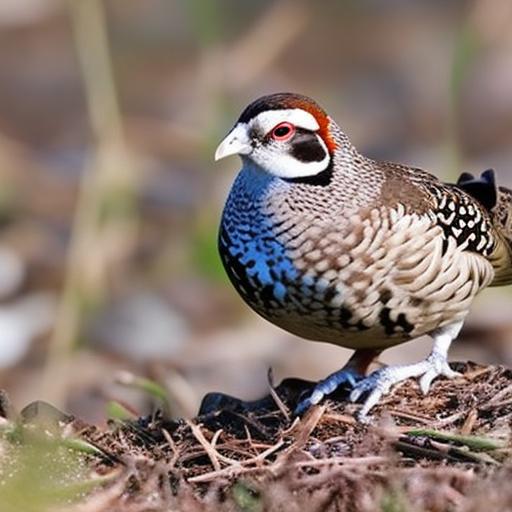In the world of quail breeding, the role of a rooster is crucial. Roosters play a vital part in the breeding process by fertilizing the eggs laid by the hens. They are responsible for mating with the hens and ensuring that the eggs are fertile. Roosters also play a role in protecting the flock, alerting them to potential dangers, and establishing a pecking order within the group. Their presence is essential for maintaining a healthy and productive quail population.
Roosters also contribute to the genetic diversity of the flock, passing on their traits to the next generation. Selecting the right rooster for breeding is essential for ensuring the health and productivity of the quail population. It is important to consider factors such as temperament, physical traits, and genetic background when choosing a rooster for breeding purposes. By understanding the role of a rooster in breeding quails, breeders can make informed decisions that will have a positive impact on the overall health and productivity of their flock.
Table of Contents
- 1 Assessing the Loudness of a Rooster’s Crow
- 2 Importance of Selecting a Quiet Rooster for Breeding Quails
- 3 Tips for Identifying a Quiet Rooster
- 4 Potential Challenges of a Loud Rooster in Breeding Quails
- 5 Strategies for Managing a Loud Rooster in Breeding Quails
- 6 The Impact of Selecting the Right Rooster on Breeding Quails
- 7 FAQs
Key Takeaways
- A rooster plays a crucial role in breeding quails by fertilizing eggs and protecting the flock.
- The loudness of a rooster’s crow can vary depending on the breed and individual personality.
- Selecting a quiet rooster for breeding quails is important to minimize stress and disturbance to the flock.
- Quiet roosters can be identified by observing their behavior and crowing patterns.
- A loud rooster can pose potential challenges in breeding quails, such as causing stress and disrupting egg laying.
- Managing a loud rooster in breeding quails can involve separating it from the flock or using soundproofing techniques.
- Selecting the right rooster can have a significant impact on the success and well-being of breeding quails.
Assessing the Loudness of a Rooster’s Crow
One of the most noticeable characteristics of a rooster is its crow. The crowing of a rooster serves several purposes, including establishing territory, attracting mates, and communicating with other members of the flock. While crowing is a natural behavior for roosters, the loudness and frequency of their crow can vary significantly from one bird to another. Assessing the loudness of a rooster’s crow is an important consideration when selecting a rooster for breeding quails.
The loudness of a rooster’s crow can be influenced by factors such as breed, age, and individual temperament. Some roosters are naturally louder than others, and breeders should take this into account when choosing a rooster for breeding purposes. Additionally, environmental factors such as housing conditions and proximity to neighbors can also impact the perceived loudness of a rooster’s crow. By carefully assessing the loudness of a rooster’s crow, breeders can make informed decisions about which birds are best suited for breeding purposes.
Importance of Selecting a Quiet Rooster for Breeding Quails
Selecting a quiet rooster for breeding quails is essential for several reasons. First and foremost, a quiet rooster is less likely to cause disturbances in the surrounding area. In urban or suburban settings, loud crowing can be a source of tension with neighbors and may even violate local noise ordinances. By choosing a quiet rooster for breeding, breeders can minimize potential conflicts and maintain positive relationships with their community.
Furthermore, a quiet rooster can have a calming effect on the flock. Loud and aggressive roosters can create stress and anxiety among the hens, leading to decreased egg production and overall productivity. A quiet rooster, on the other hand, can help maintain a peaceful and harmonious environment within the flock, leading to better breeding outcomes. Additionally, selecting a quiet rooster for breeding can contribute to a more enjoyable and peaceful experience for the breeder, as well as anyone else who may be in close proximity to the quail population.
Tips for Identifying a Quiet Rooster
Identifying a quiet rooster for breeding quails requires careful observation and consideration of several factors. One of the most effective ways to assess the quietness of a rooster is to spend time observing its behavior. Quiet roosters tend to be less vocal overall, with less frequent and less intense crowing compared to their louder counterparts. Additionally, quiet roosters often exhibit more gentle and calm behavior, interacting peacefully with the hens and other members of the flock.
Another tip for identifying a quiet rooster is to consider its breed and individual temperament. Some breeds are known for being quieter than others, so breeders should research the typical characteristics of different breeds before making a selection. Additionally, observing how a rooster interacts with the hens can provide valuable insight into its temperament and suitability for breeding purposes. By carefully considering these tips and taking the time to observe potential candidates, breeders can increase their chances of selecting a quiet rooster for breeding quails.
Potential Challenges of a Loud Rooster in Breeding Quails
While loud roosters may have their own unique charm, they can also present several challenges in the context of breeding quails. One of the most significant challenges is the potential for disturbances caused by loud crowing. In urban or suburban settings, loud crowing can lead to complaints from neighbors and may even result in legal issues related to noise ordinances. This can create tension and conflict that may ultimately impact the breeder’s ability to maintain their quail population.
Additionally, loud roosters can create stress and anxiety among the hens, leading to decreased egg production and overall productivity. The constant crowing of a loud rooster can disrupt the peace and harmony within the flock, leading to negative impacts on breeding outcomes. Furthermore, loud roosters may exhibit more aggressive behavior towards both hens and humans, creating potential safety concerns for breeders and anyone else who interacts with the quail population.
Strategies for Managing a Loud Rooster in Breeding Quails

While selecting a quiet rooster for breeding is ideal, there are strategies that breeders can employ to manage a loud rooster within their quail population. One approach is to provide adequate housing and environmental enrichment to minimize potential stressors that may contribute to excessive crowing. Creating a comfortable and stimulating environment for the quail population can help reduce anxiety and promote more peaceful behavior among both roosters and hens.
Another strategy is to consider separating loud roosters from the main flock or housing them in an area where their crowing will have minimal impact on others. This approach can help mitigate potential disturbances while still allowing breeders to benefit from the genetic contributions of the loud roosters. Additionally, providing ample space and opportunities for physical activity can help channel excess energy in positive ways, potentially reducing the frequency and intensity of crowing behavior.
The Impact of Selecting the Right Rooster on Breeding Quails
In conclusion, selecting the right rooster for breeding quails is essential for maintaining a healthy and productive quail population. By understanding the role of a rooster in breeding quails and carefully assessing factors such as loudness, breeders can make informed decisions that will have a positive impact on their flock. Choosing a quiet rooster for breeding can help minimize potential disturbances, reduce stress among the hens, and contribute to a more enjoyable experience for both breeders and their community.
While managing a loud rooster presents its own set of challenges, there are strategies that breeders can employ to mitigate potential issues and maintain a harmonious environment within their quail population. By considering these factors and implementing effective management strategies, breeders can ensure that their quail population thrives while minimizing potential disruptions caused by loud roosters. Ultimately, selecting the right rooster for breeding quails is crucial for promoting positive breeding outcomes and maintaining positive relationships within the community.
If you’re interested in selecting breeding quails and dealing with a loud rooster, you might also want to check out this article on “Where to Put Your Chicken Coop” from Poultry Wizard. It offers valuable insights on the best location for your coop to ensure the health and well-being of your poultry. Read more here.
FAQs
What are the factors to consider when selecting breeding quails?
When selecting breeding quails, it is important to consider the health, size, and temperament of the birds. Look for birds that are free from any diseases or deformities, and choose birds that are of a good size and have a calm and friendly temperament.
How can I identify a loud rooster?
A loud rooster can be identified by its frequent and loud crowing. Roosters are known for their distinctive crowing, which can be quite loud and can carry over long distances. If you are looking for a quiet rooster, it is best to observe the birds before making a selection.
What are the benefits of selecting a quiet rooster?
Selecting a quiet rooster can be beneficial for reducing noise pollution in urban or suburban areas. Quiet roosters are also less likely to disturb neighbors and can create a more peaceful environment for both the birds and their owners.
How can I ensure successful breeding of quails with a loud rooster?
To ensure successful breeding of quails with a loud rooster, it is important to provide adequate space and nesting areas for the birds. Additionally, monitoring the behavior of the rooster and providing a calm and stress-free environment can help to encourage successful breeding.
Meet Walter, the feathered-friend fanatic of Florida! Nestled in the sunshine state, Walter struts through life with his feathered companions, clucking his way to happiness. With a coop that’s fancier than a five-star hotel, he’s the Don Juan of the chicken world. When he’s not teaching his hens to do the cha-cha, you’ll find him in a heated debate with his prized rooster, Sir Clucks-a-Lot. Walter’s poultry passion is no yolk; he’s the sunny-side-up guy you never knew you needed in your flock of friends!







